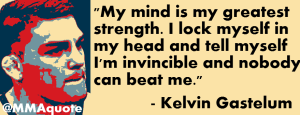Fitizen’s Spring Strip 2015 was a huge success and a great workout for an even greater cause. Spring Strip was a 5k fitness run that took place in Bluemont Park in Arlington, VA. Prepped with fitness stations along its 5k route, runners enjoyed intense workouts while doing their part to help their community. During the 5k run, participants also dropped off articles of clothing at clothing drop stations around the course. The collected clothes were then to be donated to the Salvation Army.
While a 5k run may seem like a short distance from the perspective of experienced runners, they too must admit that there is certainly a “trick” to mastering the 5k. To perform well in a 5k, which can last around 30 minutes, there are two components worth paying attention to. The first is your speed endurance, which is your ability to run at a certain pace, and hold it, throughout the course of the race or most of it. The second is your aerobic capabilities. As many runners know, oxygen is critical when it comes to running fast.
On top of those two components for a successful 5k, consider that the runners for Fitizen’s Spring Strip also had workout stations set up between the starting and finish lines. This was certainly an intense 5k.
How could a runner be better prepared for a 5k run like the Spring Strip? Here are four important tips for your next or first 5k:
1. Incorporate speed training into your current routine
If you want to run a 5k faster, you have to train running faster. Start off with short sprints, as sprinting can be very hard on the body.
2. Tackle some short uphill runs
Hills require both speed and endurance. Adding this to your routine will help you with the endurance component of a successful 5k run as well.
3. Strength Training
Getting fast is important and strengthening your muscles helps. Squats, lunges, bent over rows, and calf raises are great at strengthening the muscles that you will need to run faster. It’s not all about speed training.
4. Learn the route
Being familiar with the route will boost your confidence, and if possible allow you to practice running it before the big run.
